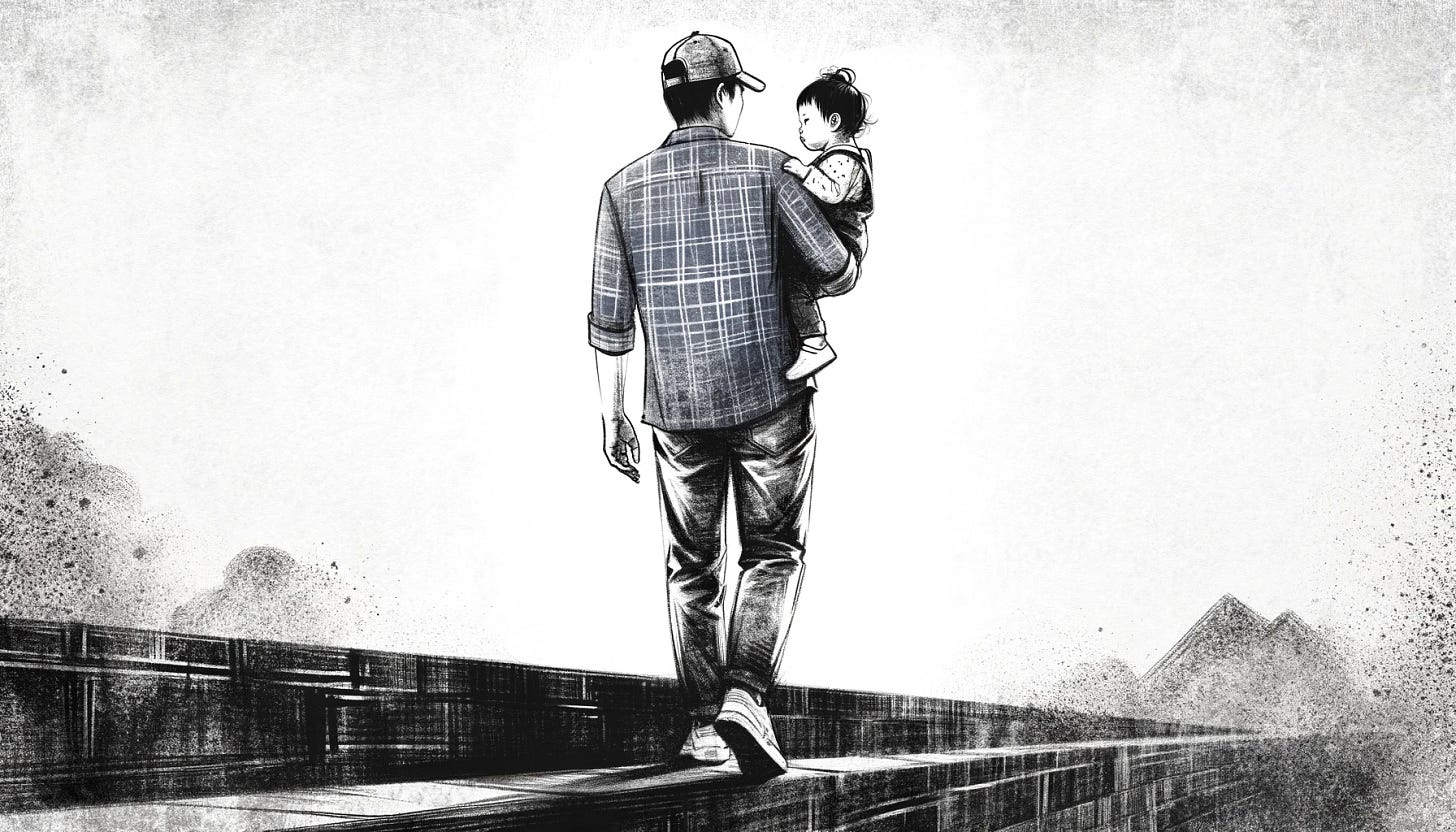parenting off-balance
Our daughter Gloria has been really fussy lately. It starts with a whine, but escalates quickly to a full body tantrum, her arms flailing and back arching, and her voice rising to a scream. It happens so fast that I almost drop her, as her torso morphs from cuddly curl to hard column and her heels accelerate towards my crotch.
It’s hard to admit, but I guess it really is a tantrum. She’s just over a year old now, and in her first year all of her cries meant something very specific — she was hungry, or tired, or needed her diaper changed. We just had to figure out what it was, and the quicker we did the happier we all were. Giving her what she wanted would not just resolve the short-term issue, but also build the long-term bond between us.
Now it’s more complicated: sometimes she’s just frustrated, or she wants to eat blueberries instead of meatballs, or she wants to lick a power outlet and we’re not letting her. The worst part is knowing that giving in will make future tantrums worse. We would be rewarding her for being angry, reinforcing that emotional pathway, and ultimately building habits that would make us all miserable.
What should we do instead? There’s no real consensus. Some parents say that we should ignore her while she’s throwing a tantrum, so she learns that they don’t work. I just find that too sad, though. It seems to me like she is spiraling out and needs help regulating her emotions. I like to think that by staying calm and present instead, I can sort of link our nervous systems together, my still reservoir damping and absorbing her small violent waves.
Before I became a father, I liked asking parents about their parenting philosophies. Although they would eventually come up with something interesting to say, most of the time they seemed a bit confused about what I was asking. Now I understand why. The hard thing about parenting isn’t picking one philosophy and sticking with it. It’s that different situations and phases require different approaches, and you’re constantly thrust into a situation that requires something new just as you’re starting to get comfortable with the old way.
In my head I can hear my boss telling me that I’m being reactive instead of proactive. In proactive mode, you are making plans and executing on them. In reactive mode, there’s no plan, you’re just trying to roll with whatever gets thrown at you. Being reactive is not always a bad thing. You can do it on less sleep, and you don’t need as much conviction. But you can’t control where you’re going.
It’s interesting to combine this with the idea that kids learn from what you do, not what you say. You can plan out what you want to tell them, but you can’t plan how you’ll react. The way you are proactively is your ambition, but the way you are reactively is your character: parenting as Greek tragedy. There could be something comforting about that, I suppose. I haven’t always been happy with how my plans have turned out, but I’m basically happy with who I am. If one day my daughter feels the same way, I’ll be happy with that too.



There's no evidence "giving in" to tantrums will make them "worse" anymore than "giving in" and feeding her when she was hungry as a baby would. It's just her needs and wants are more complicated now and she hasn't yet learned to communicate what they are or learned negotiation. It will come.
I don't think it's necessarily that "giving in" would be rewarding her feeling angry--but it might rob her of the opportunity to learn how to cope with feeling her feelings. I'm really into trying to foster emotional resiliency and intrinsically-motivated focus for my kids, because I feel like I didn't get that for myself and it seems harder to do as an adult rather than as a child.
"by staying calm and present instead, I can sort of link our nervous systems together, my still reservoir damping and absorbing her small violent waves." -- I think this is spot on! You're doing great.